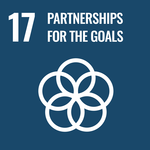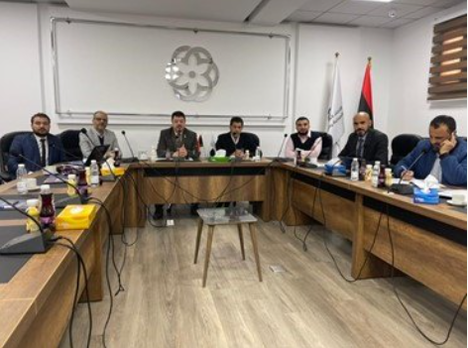Provide access to trade and market intelligence
OIC: Trade and market intelligence for ICDT
Sustainable Development Goals
<p>The project will strengthen ICDT services on trade intelligence to support the public and private sector from the Organisation of Islamic Cooperation (OIC) to make better informed decisions and, in the long term, to contribute to an increase of trade between OIC Member States through the embedding of Market Analysis Tools, the development of an online Trade Helpdesk and the development of trade-related studies.</p>
Euromed: Providing trade and market intelligence for better informed decisions (TIFM 2)
Increasing exports in the Mediterranean
The EuroMed countries of Algeria, Egypt, Israel, Jordan, Lebanon, Morocco, Palestine, Tunisia and Turkey form one of the least economically integrated regions in the world, with their 2020 share of exports representing less than 4% of all exported goods in the world.
Since the start of the COVID-19 pandemic in 2020, those exports fell by 15% compared to 2019, and dropped by almost 40% in April and May 2020. However, ITC data shows the potential for trade in goods in the region could reach $25 billion by 2025.
In 2017, ITC’s EuroMed Trade and Investment Facilitation Mechanism launched the EuroMed Trade Helpdesk online platform to provide trade in goods data at both product and market levels, market access conditions, trade statistics, business, institutional contacts, and to allow businesses to address their questions to relevant authorities.
Enhanced EuroMed Trade Helpdesk
In 2022, the Enhanced Euromed Trade Helpdesk launch will provide a wider national network to address user’s questions and cover trade in services and investment related statistics. New features will include export potential indicators, rules of origin at product level, and official Sanitary and Phytosanitary (SPS) and Technical Barriers to Trade (TBT) notifications to the WTO.
We will also conduct small and medium sized businesses surveys to identify obstacles faced by companies and allow entrepreneurs to share with policymakers their import-export concerns, and hold trainings on market analysis and on the EuroMed Trade Helpdesk.
Video
Sustainable Development Goals
<p>The Euromed Trade and Investment Facilitation Mechanism project (TIFM) phase II builds on the success of phase I, implemented by ITC between Jan. 2014 and Jun. 2017. </p><p>On 30<sup>th</sup> June 2017, ITC launched the Euromed Trade Helpdesk, an online tool and problem-solving network enhancing regional trade transparency. In March 2018, Trade Ministers from the Mediterranean region endorsed the Helpdesk as a pioneering tool for comprehensive regional trade intelligence. During the first 3 years of its existence, the Helpdesk attracted more than 34,000 users who accessed transparent and reliable market information. </p><p>Following positive feedback and requests for more information and engagement, ITC designed TIFM II to include more data, covering investment and trade in services, to deepen the understanding of trade obstacles in the region, and to strengthen the sustainability and ownership of the initiative.</p><p>ITC will implement this new phase in collaboration with public and private sectors in Algeria, Egypt, Israel, Jordan, Lebanon, Morocco, Palestine and Tunisia, providing support by fostering regional trade integration, reducing risks within global value chains, and addressing COVID-19 challenges.</p>
Tunisia: Market Intelligence within CEPEX
Sustainable Development Goals
<p>ITC is proposing to build the managerial and operational performance of CEPEX (Centre de Promotion des Exportations de la Tunisie) and strengthen its Market Intelligence skills and services to better support Tunisian entrepreneurs through the following 3 outputs:</p><p>• Strengthening CEPEX managerial and operational capacities to deliver against its new mandate as an export development agency (output 1)</p><p>• Enhancing dissemination of market intelligence on the CEPEX website (output 2)</p><p>• Strengthening market analysis skills through a capacity building programme (output 3)</p><p>• Elaboration of a study to assess the opportunity of a redeployment and an expansion of the network of Tunisian Commercial Representations of CEPEX abroad (output 4)</p><p>• Study on export opportunities of Tunisia to the COMESA (output 5)</p><p><br></p>
Business, trade and market intelligence: Artificial Intelligence
Sustainable Development Goals
<p>ChatGPT has brought AI technologies to popular attention in late 2022/early 2023. Generative AI is disrupting the landscape in a similar way that computers and the internet did. These recent developments validate ITC’s decision to invest in AI in the past two years, which has given the organization a head start compared to other TRTA providers.</p><p>In a world where text data are growing exponentially, being able to automatically mine it for relevant insights and leverage it to develop innovative AI services can provide a competitive edge to the organisation.</p><p>This C121 project started in 2022, and builds on the small C080 project developed in 2021. Building on the successful model of Trady, it will (1) continue to develop TradeAI – an AI-powered trade policy advisory tool that pinpoints policy-relevant solutions to trade-related problems, (2) disseminate ITC’s work on AI and seek partnerships to scale it, and (3) develop a concept for a TradeAI app focusing on SMEs, as the tool was developed with an initial focus on policymakers.</p>







